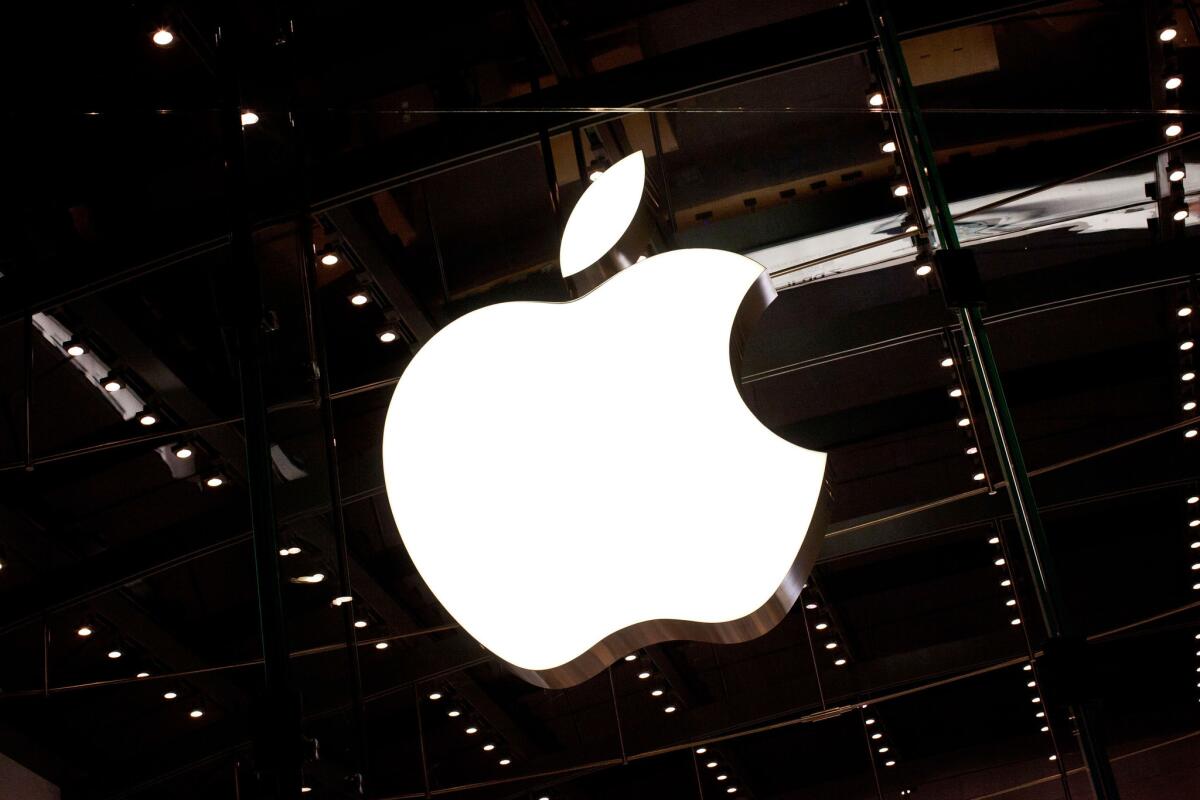iPhone demand is growing again — and that’s great news for Apple

Apple Inc. reported holiday-quarter revenue that beat Wall Street expectations on rebounding iPhone demand and surging sales of wearable devices. The results are a remarkable comeback from a year ago, when the world’s most valuable technology company missed its own targets.
A sales forecast for the current quarter also exceeded analysts’ projections, sending Apple’s stock up about 2% in extended trading. Services revenue came in slightly below expectations, limiting share gains.
The Cupertino-based company reported $91.8 billion in revenue for its fiscal first quarter ended Dec. 28, up 9% from a year earlier. Wall Street was looking for $88.4 billion, according to data compiled by Bloomberg. Profit was $4.99 a share, also beating analysts’ expectations.
For the fiscal second quarter, Apple said sales will be between $63 billion and $67 billion. Analysts estimated $62.3 billion, on average.
“The strength is coming from the iPhone and continued really strong growth in wearables and the App Store,” said Shannon Cross of Cross Research. “The iPhone was very strong.”
Apple shares have marched higher in recent months on increasingly bullish expectations for new iPhones, AirPods and revenue from iCloud storage, the App Store and other services. That elevated the stock’s valuation to the highest level in at least a decade, raising the bar for Tuesday’s results.
After years of rapid growth, Apple’s expansion has slowed as demand for smartphones waned and competition from Chinese rivals intensified. Under Chief Executive Tim Cook, the company’s strategy has evolved. It now aims to sell new handsets to customers every three to five years, and then offer as many services and accessories as possible in the intervening years.
On Tuesday, Cook said Apple saw “strong demand” for the latest iPhones and noted that a base of more than 1.5 billion devices has been “a great driver of our growth across the board.”
Cook addressed the coronavirus during a conference call with analysts, saying Apple is following developments in China. The company is working closely with employees and partners in the region, he added. Virtually all iPhones are made by Foxconn’s Hon Hai Precision Industry Co. in Zhengzhou, China, and by Pegatron Corp. at an assembly site near Shanghai.
Chief Financial Officer Luca Maestri said the revenue range projected for the fiscal second quarter was wider than usual because of uncertainty created by the spread of the virus.
Analysts have been particularly excited about wearable accessories, such as the Apple Watch and AirPods.
However, the iPhone still generates the majority of Apple’s revenue. And this crucial business has improved from a dire performance in the 2018 holiday period. The iPhone 11 and 11 Pro models were well received in their debut in the fall and demand in China has been particularly strong, outselling 2018’s releases in a market that has otherwise been shrinking.
Apple generated $56 billion in revenue from the iPhone in the fiscal first quarter, up 8% from a year earlier. That was a lot better than the previous holiday period, when sales of the handset dropped about 15%. Apple cut the price of its entry-level iPhone by $50, luring buyers. There are also millions of older iPhones that are losing software support from the company, spurring new purchases.
Wearables, including AirPods, and other accessories generated $10 billion in revenue in the holiday quarter, up 37% from a year ago.
The company reported services revenue of $12.7 billion, up 17% from the same period last year. That missed analysts’ forecasts. This business still mostly relies on older offerings such as the App Store, iCloud storage and Apple Music. It’s unclear how well Apple TV+, the Apple Card credit card and the Apple Arcade gaming subscription are performing, but there have been signs of weak demand for Apple News+, the company’s digital magazine subscription.
“One note of caution in an otherwise strong report was that services, which included Apple TV+, grew slightly below expectations,” said EMarketer principal analyst Yoram Wurmser. “This miss could be attributed to the competition from Disney+, which launched at roughly the same time.”
More to Read
Inside the business of entertainment
The Wide Shot brings you news, analysis and insights on everything from streaming wars to production — and what it all means for the future.
You may occasionally receive promotional content from the Los Angeles Times.










